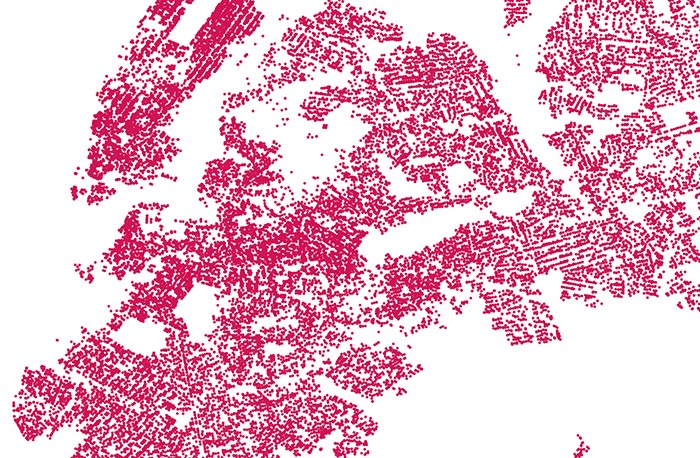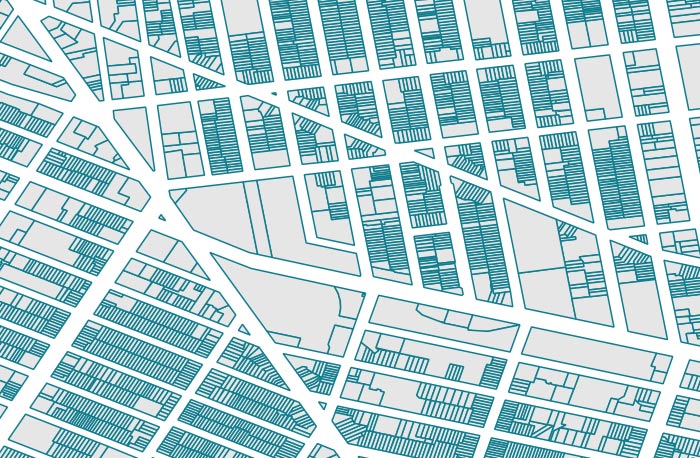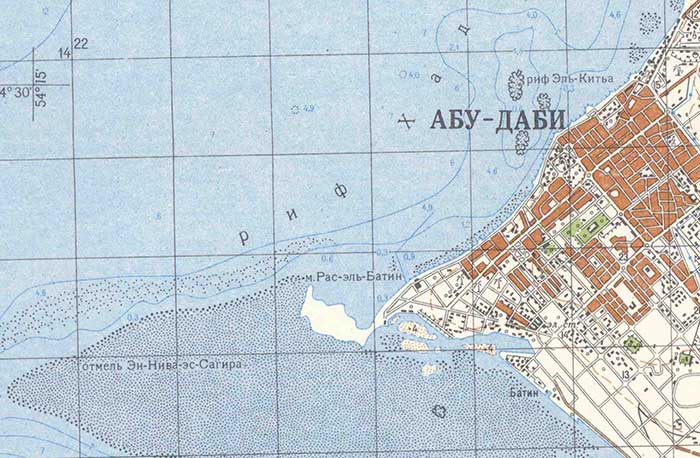View Metadata
Metropolitan Divisions United States 2010
- Identification Information
- Data Quality Information
- Spatial Data Organization Information
- Spatial Reference Information
- Entity and Attribute Information
- Distribution Information
- Metadata Reference Information
- Identification Information
- Citation
- Originator
- U.S. Census Bureau. Geography Division
- Publication Date
- 2010
- Title
- Metropolitan Divisions United States 2010
- Edition
- 2010
- Geospatial Data Presentation Form
- vector digital data
- Online Linkage
- https://hgl.harvard.edu/catalog/harvard-tg10usmetdiv
- Abstract
- This polygon data layer represents the 2010 TIGER/Line census metropolitan divisions for the United States. The TIGER/Line Files are shapefiles and related database files (.dbf) that are an extract of selected geographic and cartographic information from the U.S. Census Bureau's Master Address File / Topologically Integrated Geographic Encoding and Referencing (MAF/TIGER) Database (MTDB). The MTDB represents a seamless national file with no overlaps or gaps between parts, however, each TIGER/Line File is designed to stand alone as an independent data set, or they can be combined to cover the entire nation. Metropolitan Divisions subdivide a Metropolitan Statistical Area containing a single core urban area that has a population of at least 2.5 million to form smaller groupings of counties or equivalent entities. Not all Metropolitan Statistical Areas with urban areas of this size will contain Metropolitan Divisions. Metropolitan Division are defined by the Office of Management and Budget (OMB) and consist of one or more main counties or equivalent entities that represent an employment center or centers, plus adjacent counties associated with the main county or counties through commuting ties. Because Metropolitan Divisions represent subdivisions of larger Metropolitan Statistical Areas, it is not appropriate to rank or compare Metropolitan Divisions with Metropolitan and Micropolitan Statistical Areas. The Metropolitan Divisions for the 2010 Census are those defined by OMB and published in December 2009.
- Purpose
- In order for others to use the information in the Census MAF/TIGER database in a geographic information system (GIS) or for other geographic applications, the Census Bureau releases to the public extracts of the database in the form of TIGER/Line Shapefiles.
- Temporal Extent
- Currentness Reference
- Publication Date
- Time Period
- Beginning
- 201001
- End
- 201007
- Bounding Box
- West
- -179.231086
- East
- 179.859681
- North
- 71.441059
- South
- 17.831509
- Theme Keyword
- Boundaries
- Census
- Cities and towns
- Metropolitan areas
- Administrative and political divisions
- Theme Keyword Thesaurus
- LCSH
- Theme Keyword
- boundaries
- Theme Keyword Thesaurus
- ISO 19115 Topic Categories
- Theme Keyword
- Nation
- Polygon
- Metropolitan Division
- Theme Keyword Thesaurus
- None
- Place Keyword
- United States
- United States
- U.S.
- Place Keyword Thesaurus
- INCITS.38-200x (R2004),INCITS.31-200x (R2007),INCITS.454-200x,INCITS 455-200x,INCITS 446-2008
- Temporal Keyword
- Access Restrictions
- None
- Use Restrictions
- The TIGER/Line Shapefile products are not copyrighted however TIGER/Line and Census TIGER are registered trademarks of the U.S. Census Bureau. These products are free to use in a product or publication, however acknowledgement must be given to the U.S. Census Bureau as the source. The boundary information in the TIGER/Line Shapefiles are for statistical data collection and tabulation purposes only; their depiction and designation for statistical purposes does not constitute a determination of jurisdictional authority or rights of ownership or entitlement and they are not legal land descriptions.Coordinates in the TIGER/Line shapefiles have six implied decimal places, but the positional accuracy of these coordinates is not as great as the six decimal places suggest.
- Status
- Complete
- Maintenance and Update Frequency
- TIGER/Line Shapefiles are extracted from the Census MAF/TIGER database. No changes or updates will be made to this version of the TIGER/Line Shapefiles. Future releases of TIGER/Line Shapefiles will reflect updates made to the Census MAF/TIGER database.
- Point of Contact
- Contact Organization
- U.S. Department of Commerce, U.S. Census Bureau, Geography Division, Geographic Products Branch
- Delivery Point
- 4600 Silver Hill Road, Stop 7400
- City
- Washington
- State
- DC
- Postal Code
- 20233-7400
- Country
- United States
- Contact Telephone
- 301-763-1128
- Contact Facsimile Telephone
- 301-763-4710
- Contact Electronic Mail Address
- geo.tiger@census.gov
- Native Data Set Environment
- Microsoft Windows XP Version 5.1 (Build 2600) Service Pack 3; ESRI ArcCatalog 9.3.0.1770
- Data Quality Information
- Attribute Accuracy Report
- Accurate against Federal Information Processing Standards (FIPS), FIPS Publication 6-4, and FIPS-55 at the 100% level for the codes and base names. The remaining attribute information has been examined but has not been fully tested for accuracy.
- Logical Consistency Report
- The Census Bureau performed automated tests to ensure logical consistency and limits of shapefiles. Segments making up the outer and inner boundaries of a polygon tie end-to-end to completely enclose the area. All polygons are tested for closure. The Census Bureau uses its internally developed geographic update system to enhance and modify spatial and attribute data in the Census MAF/TIGER database. Standard geographic codes, such as FIPS codes for states, counties, municipalities, county subdivisions, places, American Indian/Alaska Native/Native Hawaiian areas, and congressional districts are used when encoding spatial entities. The Census Bureau performed spatial data tests for logical consistency of the codes during the compilation of the original Census MAF/TIGER database files. Most of the codes for geographic entities except states, counties, urban areas, Core Based Statistical Areas (CBSAs), American Indian Areas (AIAs), and congressional districts were provided to the Census Bureau by the USGS, the agency responsible for maintaining FIPS 55. Feature attribute information has been examined but has not been fully tested for consistency. For the TIGER/Line Shapefiles, the Point and Vector Object Count for the G-polygon SDTS Point and Vector Object Type reflects the number of records in the shapefile attribute table. For multi-polygon features, only one attribute record exists for each multi-polygon rather than one attribute record per individual G-polygon component of the multi-polygon feature. TIGER/Line Shapefile multi-polygons are an exception to the G-polygon object type classification. Therefore, when multi-polygons exist in a shapefile, the object count will be less than the actual number of G-polygons.
- Completeness Report
- Data completeness of the TIGER/Line Shapefiles reflects the contents of the Census MAF/TIGER database at the time the TIGER/Line Shapefiles were created.
- Lineage
- Source
- Originator
- U.S. Census Bureau. Geography Division
- Publication Date
- Unpublished material
- Title
- Census MAF/TIGER database
- Type of Source Media
- online
- Source Temporal Extent
- Time Period Information
- Range of Dates/Times
- Beginning Date
- 201001
- Ending Date
- 201007
- Source Currentness Reference
- Publication Date
- Contribution
- The selected geographic and cartographic information (line segments) are derived from the U.S. Census Bureau's Master Address File Topologically Integrated Geographic Encoding and Referencing (MAF/TIGER) database.
- Spatial Data Organization Information
- Indirect Spatial Reference Method
- Federal Information Processing Standards (FIPS), ANSI, and feature names.
- Direct Spatial Reference Method
- Vector
- Point and Vector Object Information
- SDTS Terms Description
- SDTS Point and Vector Object Type
- G-polygon
- Point and Vector Object Count
- 29
- Spatial Reference Information
- Horizontal Coordinate System Definition
- Geographic
- Latitude Resolution
- 0.000458
- Longitude Resolution
- 0.000458
- Geographic Coordinate Units
- Decimal degrees
- Geodetic Model
- Horizontal Datum Name
- North American Datum of 1983 in the 48 contiguous states, the District of Columbia, Alaska, Hawaii, Puerto Rico, the Virgin Islands of the United States, and the Pacific Island Areas.
- Ellipsoid Name
- Geodetic Reference System 80
- Semi-major Axis
- 6378137
- Denominator of Flattening Ratio
- 298257
- Entity and Attribute Information
- Entity Type
- Entity Type Label
- TG10USMETDIV.shp
- Entity Type Definition
- 2010 Census Metropolitan Division National
- Entity Type Definition Source
- U.S. Census Bureau
- Attributes
- OBJECTID
- Internal feature number. (Sequential unique whole numbers that are automatically generated.)
- Definition Source
- ESRI
- CSAFP10
- 2010 Census combined statistical area code (100 to 599)
- Definition Source
- U.S. Census Bureau
- CBSAFP10
- 2010 Census metropolitan statistical area/micropolitan
statistical area code (10000 to 49999)
- Definition Source
- U.S. Census Bureau
- METDIVFP10
- 2010 Census metropolitan division code (10004 to 49994)
- Definition Source
- U.S. Census Bureau
- GEOID10
- Metropolitan division identifier; a concatenation of
metropolitan statistical area/micropolitan statistical area
code and metropolitan division code (2010 Census metropolitan statistical area/micropolitan
statistical area code found in CBSAFP10 and the metropolitan
division code found in METDIVFP10)
- Definition Source
- U.S. Census Bureau
- NAME10
- 2010 Census metropolitan division name (Refer to the online Metropolitan Statistical
Area/Micropolitan Statistical Area file at URL:
http://www.census.gov/population/www/estimates/metroarea.htmlU.S. Census Bureau)
- Definition Source
- U.S. Census Bureau
- NAMELSAD10
- 2010 Census name and the translated legal/statistical area
description for metropolitan division (Refer to the online Metropolitan Statistical
Area/Micropolitan Statistical Area file at URL:
http://www.census.gov/population/www/estimates/metroarea.html
and the translated legal/statistical area description code
for Metropolitan Division that appears in LSADU.S. Census Bureau)
- Definition Source
- U.S. Census Bureau
- LSAD10
- 2010 Census legal/statistical area description code for
metropolitan division
- M3
- Metropolitan Division
- Definition Source
- U.S. Census Bureau
- MTFCC10
- MAF/TIGER feature class code
- G3120
- Metropolitan Division
- Definition Source
- U.S. Census Bureau
- ALAND10
- 2010 Census land area (square meters)
- 0 to 9,999,999,999,999
- Blank
- Definition Source
- U.S. Census Bureau
- AWATER10
- 2010 Census water area (square meters)
- 0 to 9,999,999,999,999
- Blank
- Definition Source
- U.S. Census Bureau
- INTPTLAT10
- 2010 Census latitude of the internal point
- 00
- Blank
- Definition Source
- U.S. Census Bureau
- INTPTLON10
- 2010 Census longitude of the internal point
- 00
- Blank
- Definition Source
- U.S. Census Bureau
- SHAPE
- Feature geometry. (Coordinates defining the features.)
- Definition Source
- ESRI
- SHAPE.AREA
- Feature area.
- Definition Source
- ESRI
- SHAPE.LEN
- Feature length.
- Definition Source
- ESRI
- Distribution Information
- Format Name
- Shapefile
- Distributor
- Harvard Geospatial Library
- Online Access
- http://hgl.harvard.edu/
- Name
- Metadata Reference Information
- Metadata Date
- 20120110
- Metadata Contact
- Contact Information
- Contact Organization Primary
- Contact Organization
- Harvard Geospatial Library
- Contact Position
- Geospatial Resources Cataloger
- Contact Address
- Address
- Harvard University Library
- Address
- Office For Information Systems
- Address
- 90 Mount Auburn Street
- City
- Cambridge
- State or Province
- MA
- Postal Code
- 02138
- Country
- USA
- Contact Voice Telephone
- 617-495-2417
- Contact Facsimile Telephone
- 617-496-0440
- Contact Electronic Mail Address
- hgl_ref@hulmail.harvard.edu
- Hours of Service
- Monday - Friday, 9:00 am - 4:00 pm EST-USA
- Metadata Standard Name
- FGDC Content Standards for Digital Geospatial Metadata
- Metadata Standard Version
- FGDC-STD-001-1998


